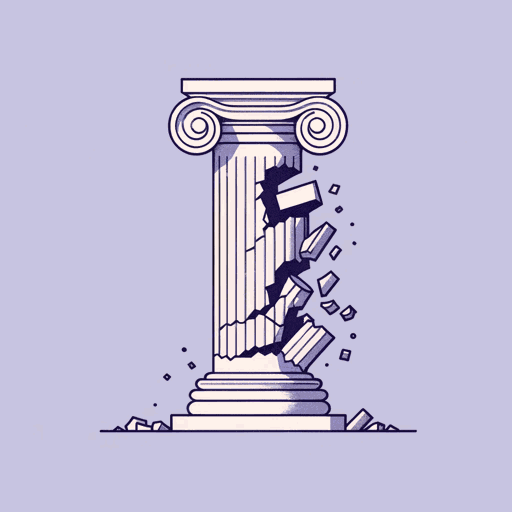44 pages • 1 hour read
Patrick J. DeneenWhy Liberalism Failed
Nonfiction | Book | Adult | Published in 2018A modern alternative to SparkNotes and CliffsNotes, SuperSummary offers high-quality Study Guides with detailed chapter summaries and analysis of major themes, characters, and more.
Important Quotes
“Liberalism has failed—not because it fell short, but because it was true to itself. It has failed because it has succeeded.”
(Introduction, Page 3)
Deneen claims that liberalism is a failed ideology because it has been allowed to truly be itself—its success has revealed The Unsustainability of Liberalism by exposing all of its flaws. The author is very clear in his assessment that liberalism hasn’t failed due to any external factor, but due to its own internal principles that have led it to die a natural death.
“In contrast to its crueler competitor ideologies, liberalism is more insidious: as an ideology, it pretends to neutrality, claiming no preference and denying any intention of shaping the souls under its rule.”
(Introduction, Page 5)
Deneen argues here that, while liberalism has competitor ideologies, it has been quite successful in comparison in the sphere of public opinion. Nobody needs to explain how fascism or communism has been rejected and failed, but liberalism’s avowed “neutrality” is, for Deneen, what makes it “more insidious”—since its core principles and aims are vaguer, it makes it harder to identify flaws and critique them.
“Many elements of what we today call our environmental crisis—climate change, resource depletion, groundwater contamination and scarcity, species extinction—are signs of battles won but a war being lost.”
(Introduction, Page 14)
Part of the paradox of liberalism is that it is currently suffering from the very things that it has supported and allowed to flourish, such as environmental exploitation and destruction. Liberalism allows individual people and endeavors to succeed in the short term, but it fails to take the long view into consideration.

